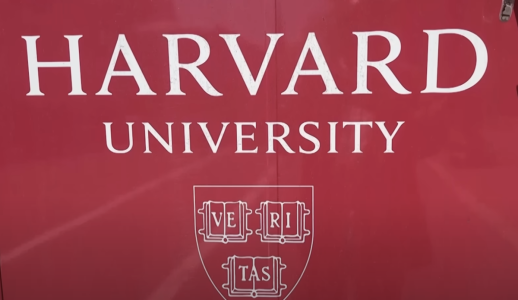Billions paused: Inside the growing standoff between Harvard and the federal government
By
Veronica E.
- Replies 10
A long-standing conversation about the role of government in higher education has taken a new turn, as Harvard University finds itself at the center of a national conversation.
The university is facing the potential loss of more than $2 billion in federal grants and contracts after declining to comply with a set of conditions proposed by the Trump administration.
The situation has sparked discussions around university independence, federal oversight, and the responsibilities that come with public funding.
The disagreement centers on a list of requested changes that include modifying certain diversity programs, implementing new campus safety policies, and adjusting procedures related to free speech and inclusion.
According to government officials, these changes were tied to ongoing concerns about antisemitism on campus and student safety during protests.

A funding freeze follows policy rejection
The federal government has paused $2.2 billion in grants and $60 million in contracts to Harvard University following the school's decision not to adopt certain policy changes requested by the Trump administration.
The announcement on April 14 followed Harvard University’s decision to reject a list of policy changes requested by President Donald Trump’s administration, marking one of the most prominent examples of pushback against the administration’s efforts to reshape policies at major US universities.
Among the proposed conditions were the removal of diversity, equity, and inclusion programs, a ban on face coverings used by protesters, and revisions to certain departments and initiatives said to "fuel antisemitic harassment."
These changes were presented as requirements for continued access to federal funding.
On April 14, Harvard’s legal team addressed a letter to officials from the Trump administration, firmly stating that the university "will not surrender its independence or relinquish its constitutional rights."
The letter went on to say, "Neither Harvard nor any other private university can allow itself to be taken over by the federal government. Accordingly, Harvard will not accept the government’s terms as an agreement in principle."
In a statement, the US Department of Education task force commented on Harvard’s response, saying it "reinforces the troubling entitlement mindset that is endemic in our nation's most prestigious universities and colleges—that federal investment does not come with the responsibility to uphold civil rights laws."
Also read: What if you could learn from Harvard… without paying?
Ongoing debate in the academic community
The conversation isn’t isolated to Harvard.
Trump has warned that funding may be cut for several top universities, including Princeton, Brown, Cornell, Northwestern, and Columbia, if they fail to meet certain conditions.
Last month, the government withdrew $400 million from Columbia and warned of further cuts, citing concerns over antisemitism and student safety during campus protests related to the Gaza conflict.
Columbia made significant changes in an effort to restore its federal funding, leading to criticism from some who felt the university gave in too easily and failed to uphold its commitment to academic freedom and free expression.
Trump described the protesters as antisemitic, claiming they support Hamas and pose a threat to US foreign policy.
Also read: Could this new executive order change how you vote? Here’s what nonprofits and lawmakers are doing to fight back
A message from university leadership
In an email to the Harvard community, Harvard President Alan Garber said the Trump administration's letter "makes clear that the intention is not to work with us to address antisemitism in a cooperative and constructive manner."
Garber noted that "although some of the demands outlined by the government are aimed at combating antisemitism, the majority represent direct governmental regulation of the 'intellectual conditions' at Harvard."
He added that the administration's demands go "beyond the power of the federal government" and infringe on the university's First Amendment rights.
"And it threatens our values as a private institution devoted to the pursuit, production, and dissemination of knowledge," he wrote.
This situation has reignited a broader conversation about the balance between federal support and institutional autonomy—a conversation that many in the education world have followed for decades.
It also highlights the ongoing challenges schools face when navigating political dynamics, public expectations, and their responsibility to students and faculty alike.
Read next: Residents speak out: How local plant dust has been making them sick!

What are your thoughts on how schools and the federal government should work together? Should public funding come with conditions, or should universities have more freedom in shaping their policies? We’d love to hear your insights—feel free to share your perspective in the comments below.
The university is facing the potential loss of more than $2 billion in federal grants and contracts after declining to comply with a set of conditions proposed by the Trump administration.
The situation has sparked discussions around university independence, federal oversight, and the responsibilities that come with public funding.
The disagreement centers on a list of requested changes that include modifying certain diversity programs, implementing new campus safety policies, and adjusting procedures related to free speech and inclusion.
According to government officials, these changes were tied to ongoing concerns about antisemitism on campus and student safety during protests.

Harvard University at the center of a national conversation on academic freedom, federal funding, and campus policy. Image Source: YouTube / Associated Press.
A funding freeze follows policy rejection
The federal government has paused $2.2 billion in grants and $60 million in contracts to Harvard University following the school's decision not to adopt certain policy changes requested by the Trump administration.
The announcement on April 14 followed Harvard University’s decision to reject a list of policy changes requested by President Donald Trump’s administration, marking one of the most prominent examples of pushback against the administration’s efforts to reshape policies at major US universities.
Among the proposed conditions were the removal of diversity, equity, and inclusion programs, a ban on face coverings used by protesters, and revisions to certain departments and initiatives said to "fuel antisemitic harassment."
These changes were presented as requirements for continued access to federal funding.
On April 14, Harvard’s legal team addressed a letter to officials from the Trump administration, firmly stating that the university "will not surrender its independence or relinquish its constitutional rights."
The letter went on to say, "Neither Harvard nor any other private university can allow itself to be taken over by the federal government. Accordingly, Harvard will not accept the government’s terms as an agreement in principle."
In a statement, the US Department of Education task force commented on Harvard’s response, saying it "reinforces the troubling entitlement mindset that is endemic in our nation's most prestigious universities and colleges—that federal investment does not come with the responsibility to uphold civil rights laws."
Also read: What if you could learn from Harvard… without paying?
Ongoing debate in the academic community
The conversation isn’t isolated to Harvard.
Trump has warned that funding may be cut for several top universities, including Princeton, Brown, Cornell, Northwestern, and Columbia, if they fail to meet certain conditions.
Last month, the government withdrew $400 million from Columbia and warned of further cuts, citing concerns over antisemitism and student safety during campus protests related to the Gaza conflict.
Columbia made significant changes in an effort to restore its federal funding, leading to criticism from some who felt the university gave in too easily and failed to uphold its commitment to academic freedom and free expression.
Trump described the protesters as antisemitic, claiming they support Hamas and pose a threat to US foreign policy.
Also read: Could this new executive order change how you vote? Here’s what nonprofits and lawmakers are doing to fight back
A message from university leadership
In an email to the Harvard community, Harvard President Alan Garber said the Trump administration's letter "makes clear that the intention is not to work with us to address antisemitism in a cooperative and constructive manner."
Garber noted that "although some of the demands outlined by the government are aimed at combating antisemitism, the majority represent direct governmental regulation of the 'intellectual conditions' at Harvard."
He added that the administration's demands go "beyond the power of the federal government" and infringe on the university's First Amendment rights.
"And it threatens our values as a private institution devoted to the pursuit, production, and dissemination of knowledge," he wrote.
This situation has reignited a broader conversation about the balance between federal support and institutional autonomy—a conversation that many in the education world have followed for decades.
It also highlights the ongoing challenges schools face when navigating political dynamics, public expectations, and their responsibility to students and faculty alike.
Read next: Residents speak out: How local plant dust has been making them sick!
Key Takeaways
- The Trump administration has frozen a total of $2.2 billion in grants and $60 million in contracts to Harvard University after the institution refused to meet the administration's demands.
- The federal government's demands included instituting a mask ban, eliminating diversity, equity, and inclusion programs, and changing programs that were claimed to fuel antisemitic harassment.
- Harvard University has defended its independence and constitutional rights, stating that it will not give in to the federal government's terms.
- Harvard President Alan Garber stated that while some demands aim to counter antisemitism, most represent direct governmental regulation of the university, violating its First Amendment rights and threatening its core values.
What are your thoughts on how schools and the federal government should work together? Should public funding come with conditions, or should universities have more freedom in shaping their policies? We’d love to hear your insights—feel free to share your perspective in the comments below.






